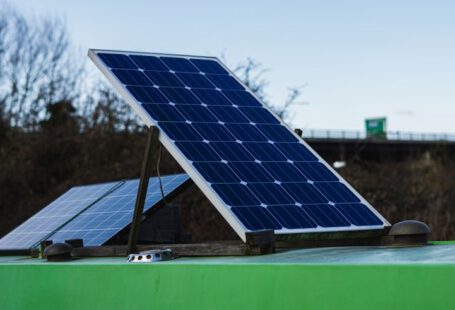Solar energy is a clean and renewable source of power that is becoming increasingly popular among homeowners and businesses. One of the key challenges with solar energy systems is how to store the energy generated during the day for use at night or during cloudy days. This is where batteries for solar systems come into play, allowing users to store excess energy for later use. In this article, we will explore the importance of batteries in solar systems and how they work to help you make the most of your solar energy setup.
The Importance of Battery Storage
One of the main advantages of using batteries in a solar energy system is the ability to store excess energy that is generated during the day. Solar panels produce the most electricity during peak sunlight hours, which may not align with when you actually need to use that energy. By storing the excess energy in batteries, you can ensure that you have a reliable source of power even when the sun isn’t shining.
Battery storage also helps to increase the self-sufficiency of your solar system. By having a backup power source, you can reduce your reliance on the grid and potentially save money on your electricity bills. Additionally, batteries can provide power during outages, offering peace of mind and security in times of need.
How Batteries Work in Solar Systems
Batteries for solar systems work by storing the DC electricity generated by the solar panels. This stored energy can then be converted back to AC electricity when needed to power your home or business. The key components of a solar battery system include the battery bank, charge controller, and inverter.
The battery bank is where the electricity is stored and is typically made up of multiple batteries connected in series or parallel to meet the energy storage requirements of the system. The charge controller regulates the flow of electricity to and from the batteries, ensuring they are charged and discharged safely and efficiently. The inverter converts the DC electricity stored in the batteries into AC electricity that can be used to power your appliances and devices.
Choosing the Right Battery for Your Solar System
When it comes to selecting a battery for your solar system, there are several factors to consider. The capacity of the battery, measured in kilowatt-hours (kWh), determines how much energy it can store. It’s important to choose a battery with a capacity that aligns with your energy needs to ensure you have an adequate backup power supply.
Another important factor to consider is the depth of discharge (DoD) of the battery. This refers to the percentage of the total capacity that can be safely discharged without causing damage to the battery. Batteries with a higher DoD typically have a longer lifespan and can withstand more frequent charging and discharging cycles.
Additionally, the type of battery chemistry can impact the performance and longevity of the battery. Common battery chemistries used in solar systems include lead-acid, lithium-ion, and saltwater batteries. Each type has its own advantages and disadvantages in terms of cost, efficiency, and lifespan, so it’s essential to research and compare the options to find the best fit for your specific needs.
Maximizing the Efficiency of Your Solar Battery System
To get the most out of your solar battery system, it’s important to practice good energy management habits. This includes…
Ensuring your solar panels are properly sized to meet your energy needs and maximize the amount of energy generated.
Regularly monitoring and maintaining your battery system to ensure it is operating efficiently and safely.
Optimizing your energy usage by scheduling high-energy activities during peak sunlight hours to minimize reliance on battery power.
Conclusion: Harnessing the Power of Solar Energy Storage
In conclusion, batteries play a crucial role in solar energy systems by enabling users to store excess energy for use when needed. By understanding how batteries work in solar systems and selecting the right battery for your specific needs, you can maximize the efficiency and effectiveness of your solar energy setup. With the right battery storage solution, you can harness the power of solar energy to reduce your environmental impact, increase your energy independence, and enjoy reliable power whenever you need it.





